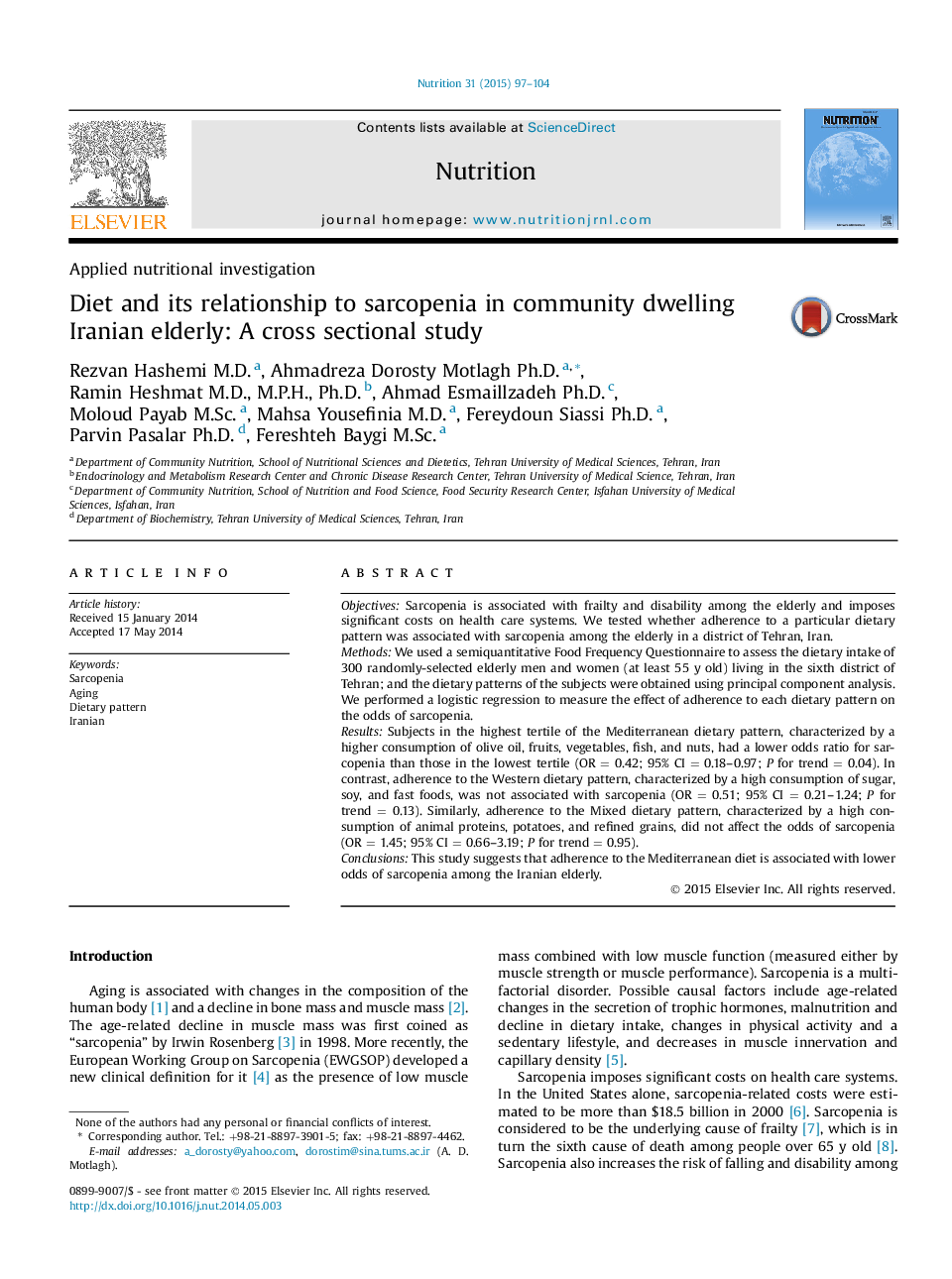| Article ID | Journal | Published Year | Pages | File Type |
|---|---|---|---|---|
| 6089496 | Nutrition | 2015 | 8 Pages |
ObjectivesSarcopenia is associated with frailty and disability among the elderly and imposes significant costs on health care systems. We tested whether adherence to a particular dietary pattern was associated with sarcopenia among the elderly in a district of Tehran, Iran.MethodsWe used a semiquantitative Food Frequency Questionnaire to assess the dietary intake of 300 randomly-selected elderly men and women (at least 55 y old) living in the sixth district of Tehran; and the dietary patterns of the subjects were obtained using principal component analysis. We performed a logistic regression to measure the effect of adherence to each dietary pattern on the odds of sarcopenia.ResultsSubjects in the highest tertile of the Mediterranean dietary pattern, characterized by a higher consumption of olive oil, fruits, vegetables, fish, and nuts, had a lower odds ratio for sarcopenia than those in the lowest tertile (OR = 0.42; 95% CI = 0.18-0.97; P for trend = 0.04). In contrast, adherence to the Western dietary pattern, characterized by a high consumption of sugar, soy, and fast foods, was not associated with sarcopenia (OR = 0.51; 95% CI = 0.21-1.24; P for trend = 0.13). Similarly, adherence to the Mixed dietary pattern, characterized by a high consumption of animal proteins, potatoes, and refined grains, did not affect the odds of sarcopenia (OR = 1.45; 95% CI = 0.66-3.19; P for trend = 0.95).ConclusionsThis study suggests that adherence to the Mediterranean diet is associated with lower odds of sarcopenia among the Iranian elderly.
